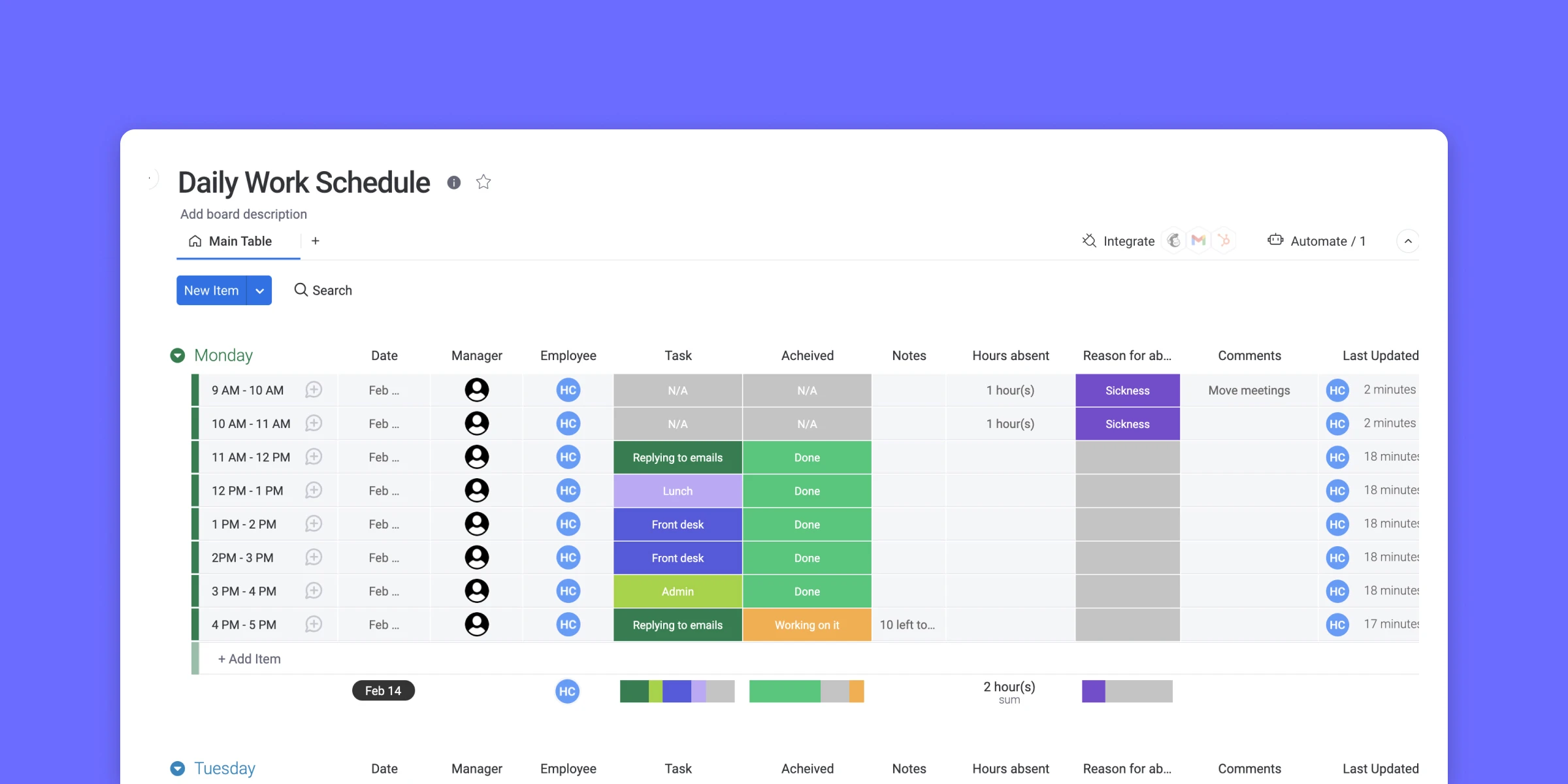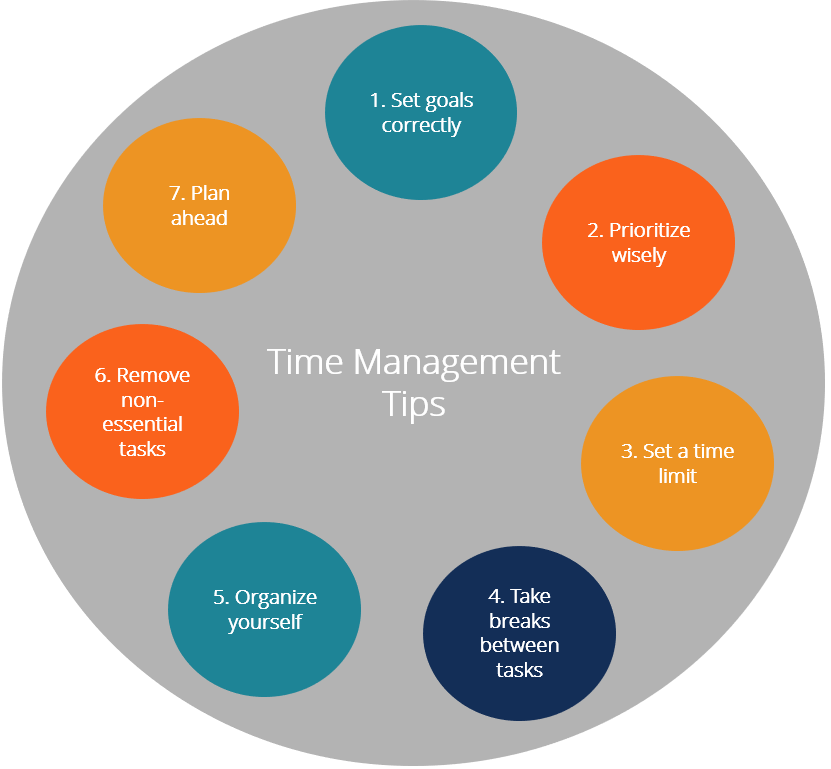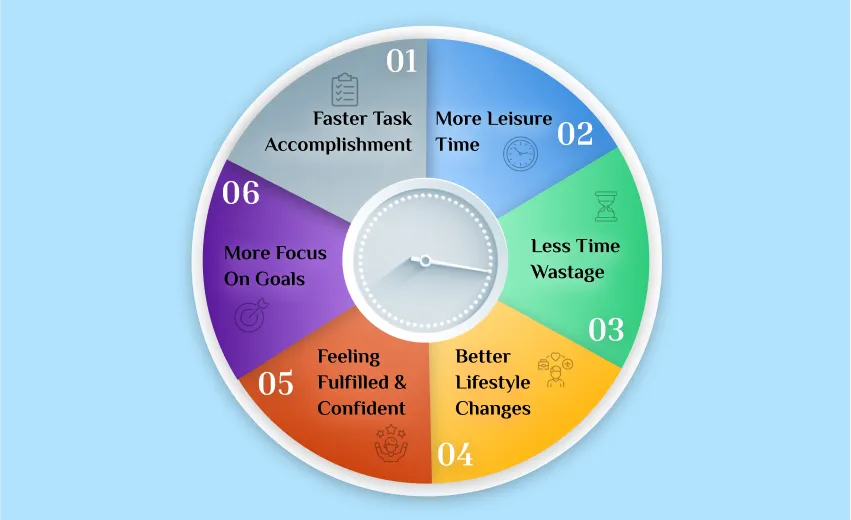Time is one of our most valuable resources, yet it often feels like there’s never enough of it. Effective time management is the key to achieving your goals, reducing stress, and maintaining balance in your life. By mastering the art of time management, you can boost productivity and create space for what matters most.
1. Set Clear Goals
Clear goals provide direction and purpose, helping you prioritize tasks effectively.
- Tips:
- Use the SMART framework (Specific, Measurable, Achievable, Relevant, Time-bound) to set your goals.
- Break long-term goals into smaller, actionable steps.
- Example: Instead of saying, “I want to exercise more,” set a goal like, “I will work out for 30 minutes, 5 days a week.”
2. Prioritize Your Tasks
Not all tasks are equally important. Learn to identify and focus on what truly matters.
- Use the Eisenhower Matrix:
- Urgent and Important: Do immediately.
- Important but Not Urgent: Schedule for later.
- Urgent but Not Important: Delegate.
- Neither Urgent nor Important: Eliminate.
- Benefit: Ensures your energy goes to high-priority tasks.
3. Plan Your Day in Advance
Planning creates structure and reduces decision fatigue.
- How to Plan:
- Dedicate 10–15 minutes each evening to plan the next day.
- Use tools like planners, apps, or digital calendars.
- Include buffer time for unexpected interruptions.
- Example: Block specific hours for work tasks, personal activities, and breaks.
4. Use Time-Blocking
Time-blocking involves scheduling chunks of time for specific tasks.
- Steps:
- Divide your day into blocks for focused work, meetings, and leisure.
- Stick to the schedule as much as possible.
- Benefit: Enhances focus and prevents multitasking.
5. Avoid Multitasking
While multitasking might seem efficient, it often reduces productivity and increases errors.
- What to Do Instead:
- Focus on one task at a time until it’s complete.
- Use techniques like the Pomodoro Technique to maintain focus (work for 25 minutes, then take a 5-minute break).
- Benefit: Improves the quality of work and reduces mental strain.
6. Learn to Say No
Overcommitting can lead to burnout and inefficiency. Recognize your limits and protect your time.
- How to Say No:
- Politely decline requests that don’t align with your priorities.
- Offer alternatives if appropriate.
- Practice assertive but respectful communication.
- Example: “I’d love to help, but I’m currently focused on other commitments.”
7. Eliminate Distractions
Distractions are productivity killers. Identify and minimize them to stay on track.
- Tips:
- Turn off notifications on your phone or computer.
- Create a dedicated workspace free from distractions.
- Use tools like website blockers to prevent aimless browsing.
- Benefit: Allows for deeper focus and quicker task completion.
8. Delegate and Outsource
You don’t have to do everything yourself. Delegating tasks frees up your time for higher-priority activities.
- How to Delegate:
- Assign tasks to capable team members or assistants.
- Clearly communicate expectations and deadlines.
- Outsourcing Ideas: Use services for repetitive or time-consuming tasks, such as cleaning, administrative work, or meal prep.
9. Take Breaks
Breaks rejuvenate your mind and body, boosting productivity.
- Effective Break Strategies:
- Use the 90-minute focus cycle: work for 90 minutes, then take a 15-minute break.
- Step away from your desk, stretch, or take a short walk.
- Benefit: Prevents burnout and enhances creativity.
10. Review and Adjust
Regularly reviewing your time management strategies ensures they remain effective.
- How to Review:
- At the end of each week, assess what worked and what didn’t.
- Adjust your plans or habits as needed.
- Example: If meetings took up too much time, consider consolidating them or shortening their duration.
11. Use Technology Wisely
Technology offers a wealth of tools to simplify time management.
- Recommended Apps:
- Trello or Asana: Task organization and project management.
- Google Calendar: Scheduling and reminders.
- Forest: Stay focused by gamifying productivity.
- Benefit: Streamlines planning and enhances organization.
12. Adopt a Growth Mindset
Time management is a skill that improves with practice. Embrace challenges and view mistakes as opportunities to learn.
- Strategies for Growth:
- Reflect on past successes to build confidence.
- Stay flexible and adapt to changing circumstances.
- Benefit: Encourages continuous improvement.
13. Incorporate Self-Care
Managing your time effectively also means prioritizing your well-being.
- Self-Care Ideas:
- Schedule downtime for hobbies and relaxation.
- Maintain a healthy work-life balance.
- Practice mindfulness or meditation to reduce stress.
- Benefit: Boosts overall productivity and mental clarity.
14. Set Boundaries
Protecting your time requires establishing boundaries, especially in work and social settings.
- How to Set Boundaries:
- Define your availability for work and personal commitments.
- Communicate your limits clearly to colleagues, friends, and family.
- Stick to your boundaries consistently.
- Benefit: Prevents overextension and ensures time for priorities.
15. Celebrate Achievements
Recognizing your accomplishments, no matter how small, reinforces positive habits.
- How to Celebrate:
- Treat yourself to something you enjoy.
- Share your success with friends or family.
- Reflect on how far you’ve come.
- Benefit: Increases motivation and satisfaction.
Sample Daily Time Management Routine
Morning
- Wake up at a consistent time and review your goals.
- Spend 10 minutes practicing mindfulness or deep breathing.
- Tackle the most important task of the day first (your “big rock”).
Afternoon
- Schedule meetings or collaborative work during this productive window.
- Take a lunch break to recharge.
- Use the Pomodoro Technique to complete focused tasks.
Evening
- Review the day’s accomplishments and plan for tomorrow.
- Dedicate time for personal activities or hobbies.
- Unwind with a relaxing bedtime routine.
Conclusion
Effective time management is about working smarter, not harder. By setting clear goals, prioritizing tasks, and creating structured routines, you can achieve more while maintaining a sense of balance. Remember, time is a finite resource—use it wisely and intentionally to live a fulfilling and productive life.




